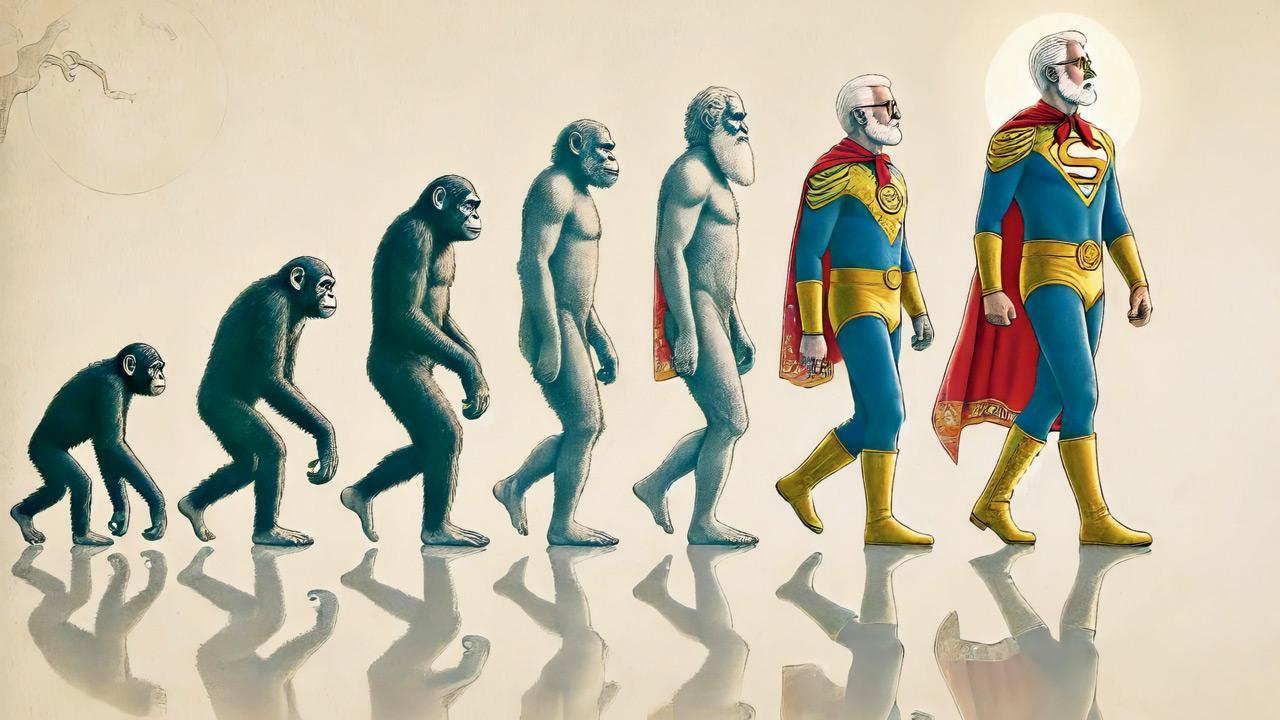
The 44-year-old stoner from Atlanta told me that he followed fire and hoped to retire soon. He was a digital nomad passing through Bangkok and believed that he might be a Renaissance man with unsuspected skills. Mainly, he told me, he was into crypto.
I asked him the question on my mind. “What did you mean you follow fire?” “You don’t know?” he said. “Financial Independence Retire Early is FIRE.

Life is all about FIRE. Everybody knows about FIRE.” “So it’s about getting rich and retiring?” “It’s what everybody wants, dude,” he said.
Human life today can be divided into two phases: you’re either retired or you’re heading toward retirement. It is simply assumed that after a certain age, just around 60, you turn into an old cow and should be released to spend your remaining days in the pasture chewing the cud. Retirement implies that you’ve stopped doing something you’ve done for a long time—in this case, a job of work.
It hints that you never really liked doing it anyway. It suggests that the real reason you did it all your life was to find a way to stop doing it as soon as possible. You swatted flies all day so that one day you’d not have to swat any flies.
Nearly all my coevals from school and college are now joyously retired. Some have won lifetime achievement awards, with its depressing connotation that their lifetimes are over. I, who still offer seats to senior citizens, listen to them carefully.
“Now I can do what I really want to do,” says one. On probing, that turns out to be eating a lot, playing golf and sleeping early. “Now I finally have time for myself,” says another.
What does he do with that time? He reorganises sepia-coloured family photographs and harasses his married sons and daughters with long weekly Zoom calls. In between, he goes to his cottage in the hills and breathes. “At last I have time for my family,” says a third, not mentioning that the only family he has now is his ailing wife.
His children are citizens of other countries and have non-Indian wives and chestnut-haired children. “I can sleep all day,” says one more. He does sleep all day, the sleep of the dead.
Retirement, it turns out, is neither new nor original. In 13 BCE, the Roman emperor Augustus offered Roman legionnaires a retirement package of about 13 times their annual salary (mainly as an incentive to stay loyal and avoid assassinating him). But some studies early in the 20th century indicated that people’s mental capacities start declining after 60 and they become less productive thanks to arthritis, debility and general wear and tear.
William Ostler, who taught medicine at Johns Hopkins, proposed in 1905 that all people should retire at 60 because by then they had lost their mental elasticity. A century later, we still think of those over 60 as people who should be “let go” because their productive days are over. They’re over the hill.
What, I wondered, was India’s retirement age in the years after Independence, when a male could not expect to live beyond age 37 and a female a year earlier? Shouldn’t the retirement age evolve as the life expectancy changes? In 2024, an Indian life span was 70.62 years, and that’s an average. But the deaths I have counted in the last decade have mostly been people in their 80s.
If such a person is retired at 60, would they spend their remaining 15-20 years doing—nothing? There’s no denying that ageing is a thing. Like cars, we too run down and eventually must be sent to the junkyard. We must make room for young blood to take over.
But none of this makes a case for retirement based on age, or even mandating retirement for an entire demographic in a world where people can work from home, learn new skills continuously online and be productive in unimaginable ways long after age 60. Clint Eastwood is 94 and is still making waves with his latest movie, Juror #2. The most game-changing reason for taking a second look at retirement is the growing body of research that shows a direct link between retirement and dementia.
However, cognitive decline is no longer a viable rationale for retirement. It turns out to be a possible consequence of retirement. A 2016 study in the Journal of Epidemiology and Community Health suggests that retiring early may increase your risk of dying early.
Even retirees with health problems lived longer when they postponed retirement. A French study linked later retirement to a reduced risk of Alzheimer’s disease and other forms of dementia. The young American I met, the one with FIRE in his blood, might become a billionaire and retire by 50, but science has bad news for him.
Those who retire early are also more likely to die early because they stopped working their bodies and minds. If you don’t use it, you will surely lose it..















